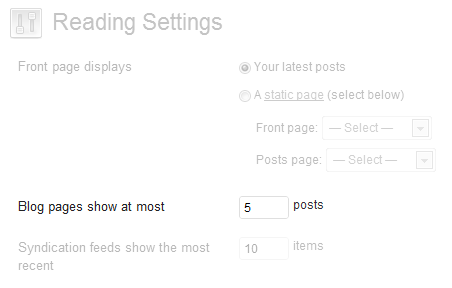In the Reading Settings, there is place to set the number of posts shown that affects the number of posts shown in all contexts. I'd like to show instead a certain number of posts on the homepage, and a different number of posts on pages like archive, search results, etc.

I realize I could do this by editing the theme files and changing the query parameters there, but I'd prefer to have easier access to a simple settings page. A long time ago, I came across a plugin that did this, but I can't locate it now.
Does anyone know of a plugin to do this, or even a function I could put in functions.php to accomplish the same thing?
